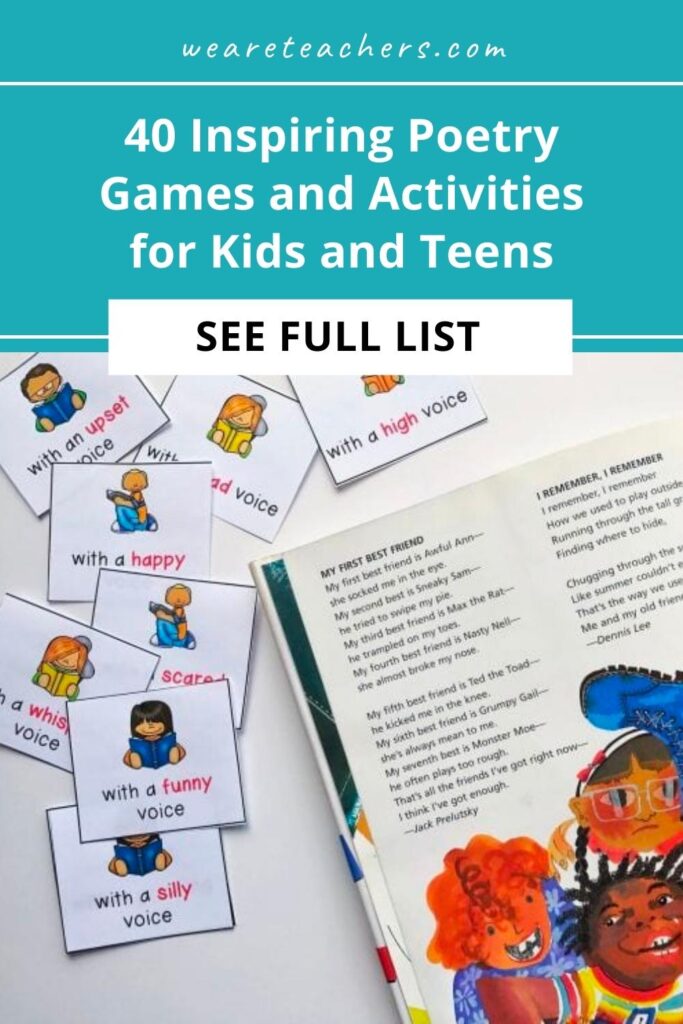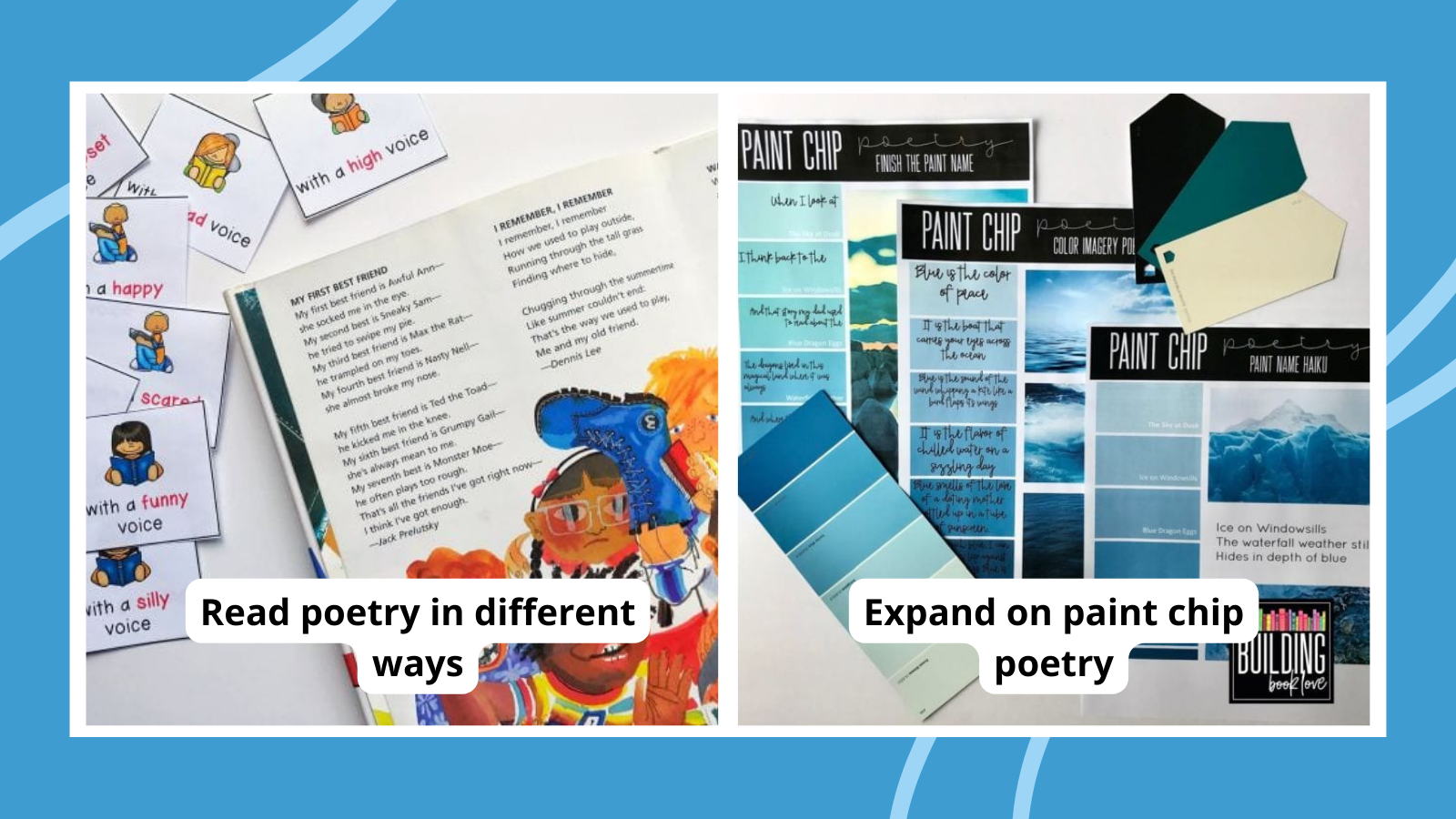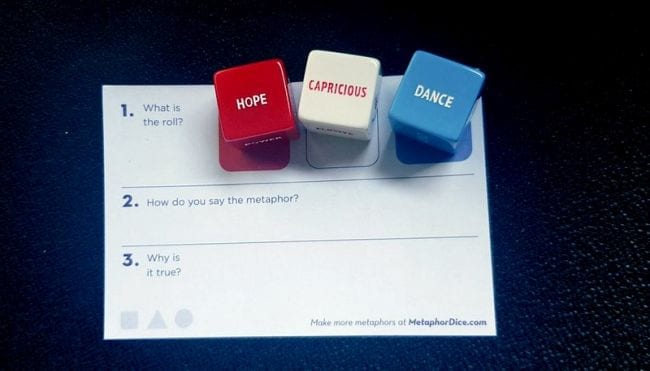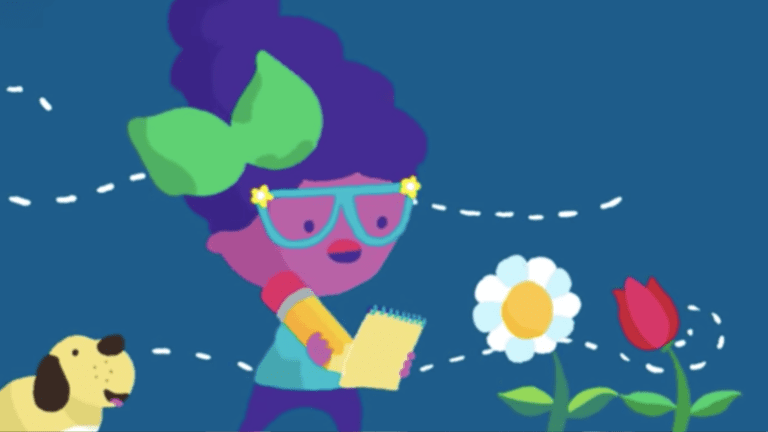Tired of hearing groans when you announce it’s time for some poetry? Poems can be hard for kids to connect with, so it helps to have some clever poetry games and poetry activities up your sleeve. Try these with our favorite poems for sharing with elementary students and middle and high school students!
Our Favorite Poetry Games and Activities
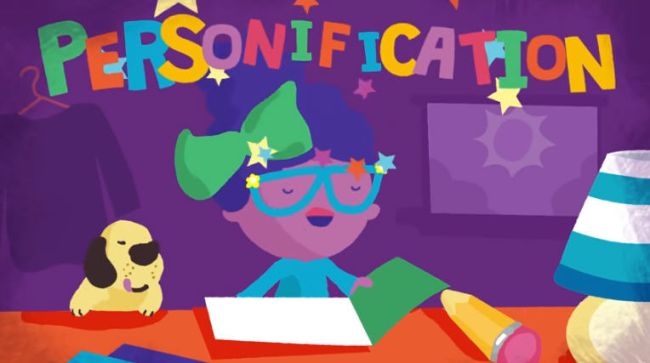
1. Watch poetry videos
Let YouTube do some of the work for you with this roundup of poetry videos for elementary students. See authors read their own poems, learn about poetry terms, and more.
Learn more: We Are Teachers

2. Climb a hill with Amanda Gorman
Young poet Amanda Gorman took the world by storm when she read her poem “The Hill We Climb” at President Biden’s inauguration. Kids can really relate to her and her words, so try this roundup of poetry activities to introduce her in your classroom.
Learn more: We Are Teachers Poetry Month
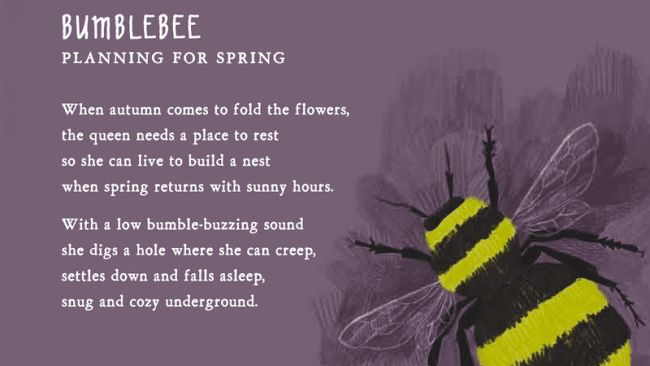
3. Take inspiration from nature
Nature has always provided inspiration for poets, and it can help your students find their own way to a love of poetry. Find out how poet David Harrison uses nature to help kids tap into their poetic sides here.
Learn more: Science and Poetry
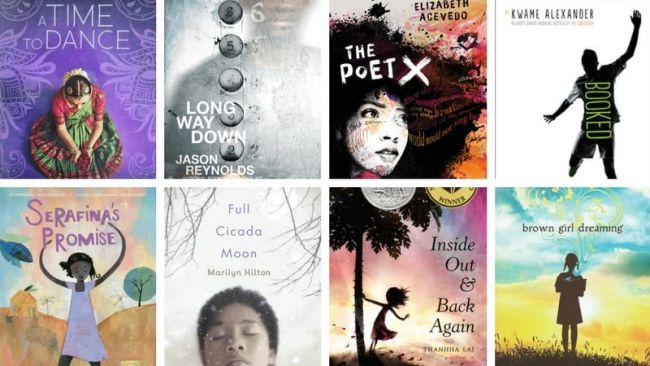
4. Read a novel in verse
Help kids find more meaning in poetry by reading novels told in verse. When they have a story to follow, they’re more likely to be engaged and open to learning about the poetic elements. Here are some of our favorite novels in verse for students of all ages.
Learn more: Best Novels in Verse
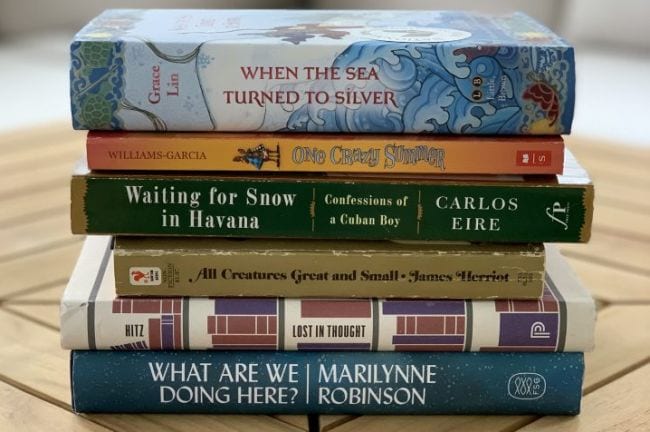
5. Stack up book spine poetry
Pull some books off the shelves and stack them so their titles create a poem. Kids can take a pic, write the titles down as they are, or use their stack as inspiration for a more fleshed-out masterpiece.
Learn more: Living the Learning Life
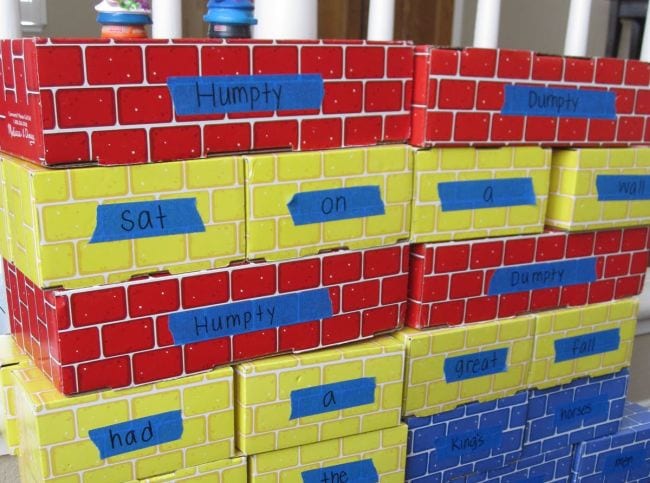
6. Build a Humpty Dumpty wall
For most of us, nursery rhymes were the first poems we read, and they’re the perfect place to start with poetry games. Write words on building blocks (try this set of Giant Cardboard Blocks from Amazon), then stack them up to build a wall. Kids will get a kick out of these poetry activities by knocking the wall down and then building it up again!
Learn more: Toddler Approved
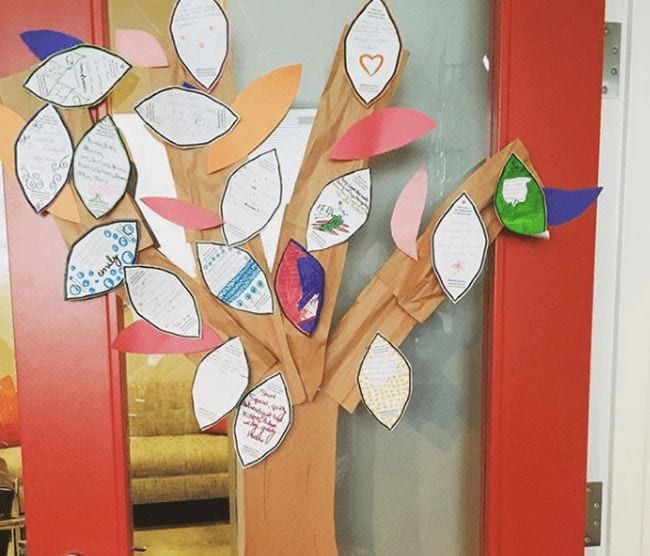
7. Plant a poe-tree
“I think that I shall never see / a poem as lovely as a poe-tree!” Hang a paper tree, then fill it with leaves covered with poetry from your students.
Learn more: HarperCollins
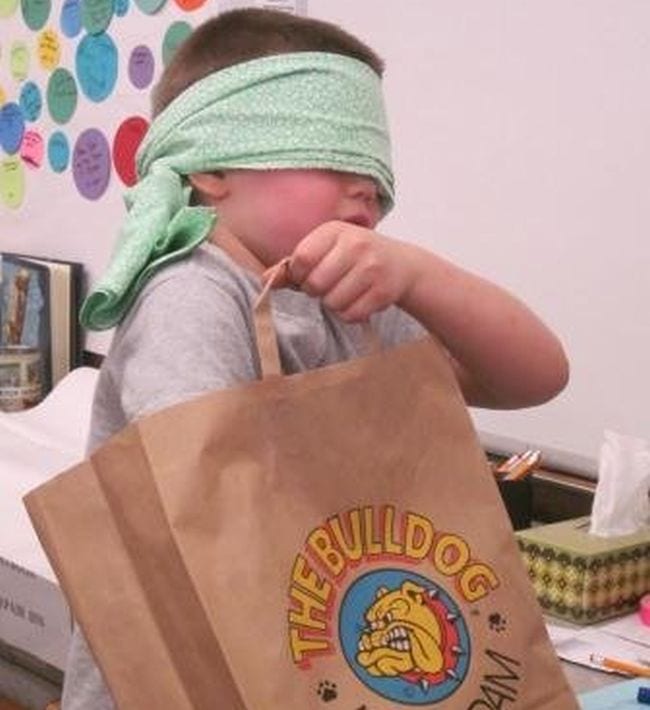
8. Try paper bag poetry
Introduce poetry to little ones with a paper bag filled with several items of different sizes, shapes, textures, etc. Kids reach into the bag without looking and describe what they feel in a few words. These words make their first poem. This is one of the great poetry activities for younger students.
Learn more: Bulldog Readers and Bobcats Blog
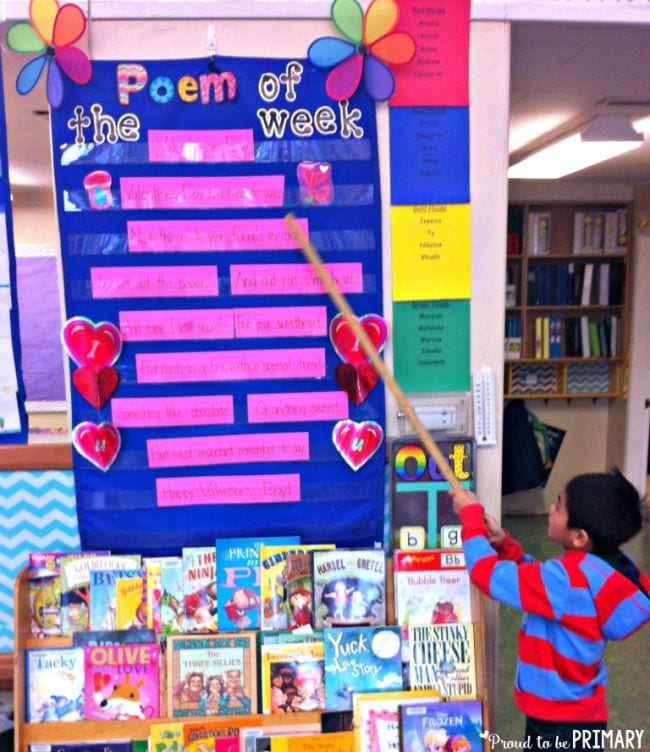
9. Explore a Poem of the Week
We love the idea of using a pocket chart with sentence strips to post a poem broken down by lines or phrases. Do a different activity each day throughout the week to help students make a connection.
Learn more: Proud To Be Primary

10. Go on a poetry speed date
This is a cool way to introduce older readers to a poetry unit. Gather up all the poetry books you can find, and invite students to bring their favorites too. Students spend the class period “speed dating” the books—they simply browse and skim, looking for poems and authors that catch their eye. Encourage them to make notes of their favorites for further reading.
Learn more: Nouvelle ELA
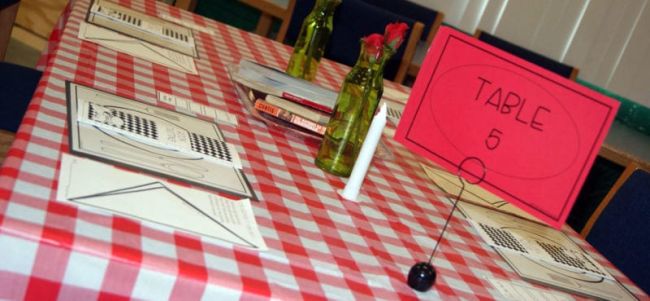
11. Have a poetry book tasting
Here’s a cool spin on the speed-dating idea—a book tasting! Set up your room to look like a restaurant, play classical music in the background, and then invite students to sit down and try a variety of poetry books.
Learn more: Ideas on how to hold a book tasting.
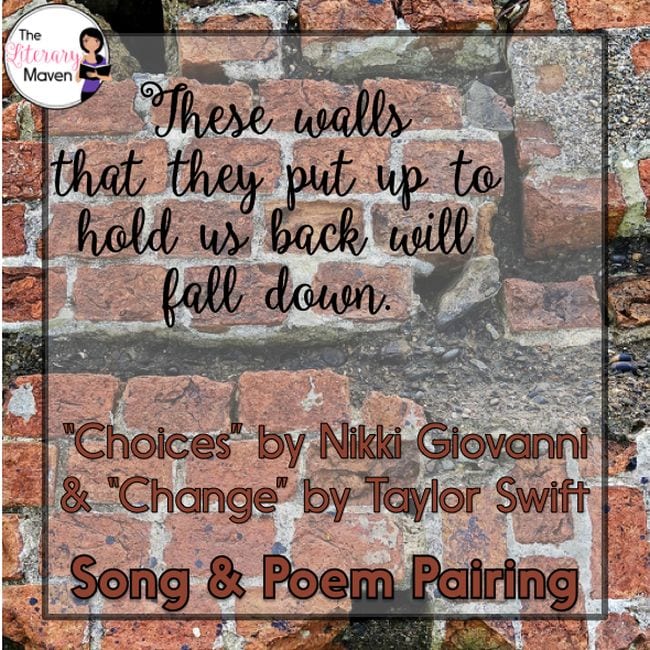
12. Pair up songs and poems
One of the easiest ways for many students to connect with poetry is by linking it with song lyrics. Visit the link below to find 15 fantastic song and poem pairings. Then, challenge your students to make their own pairings and explain the reasoning.
Learn more: The Literary Maven
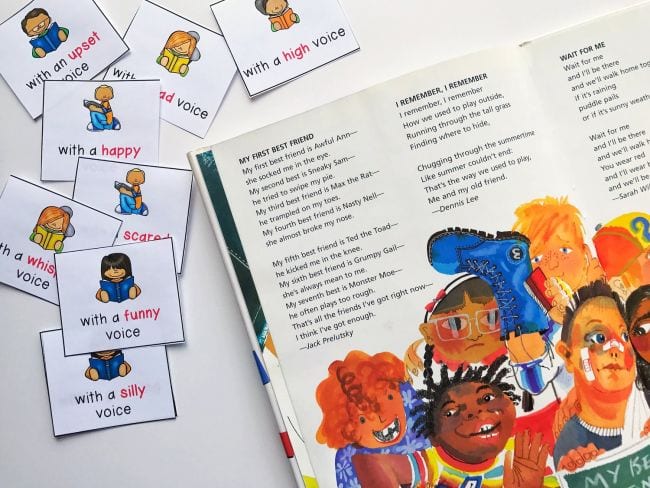
13. Read poetry in different ways
Poetry is all about the reader’s (or listener’s) experience. Experiment with that idea by having kids read poems out loud in a variety of ways. How does it change the experience when you read a sad poem in a silly voice or a funny poem in a scared voice?
Learn more: The Classroom Nook/Poetry Voices
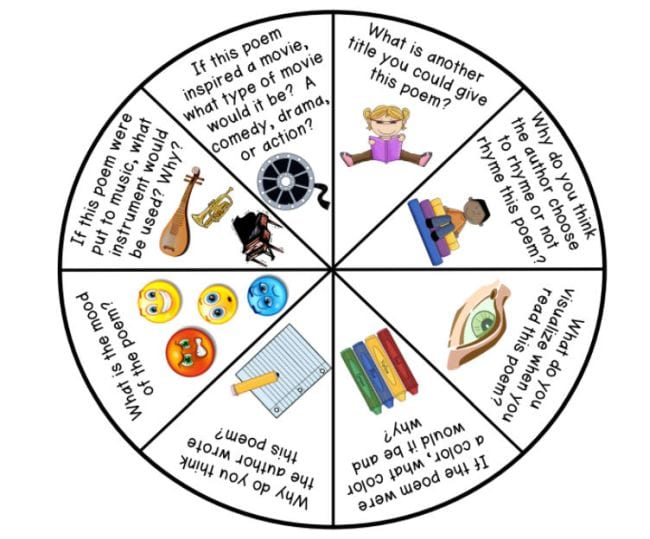
14. Spin to generate discussion
A poetry discussion can be hard going for kids at first. Use this free printable spinner to give them conversation starters or to help them choose a topic for further exploration.
Learn more: Poetry Spinner/The Classroom Game Nook
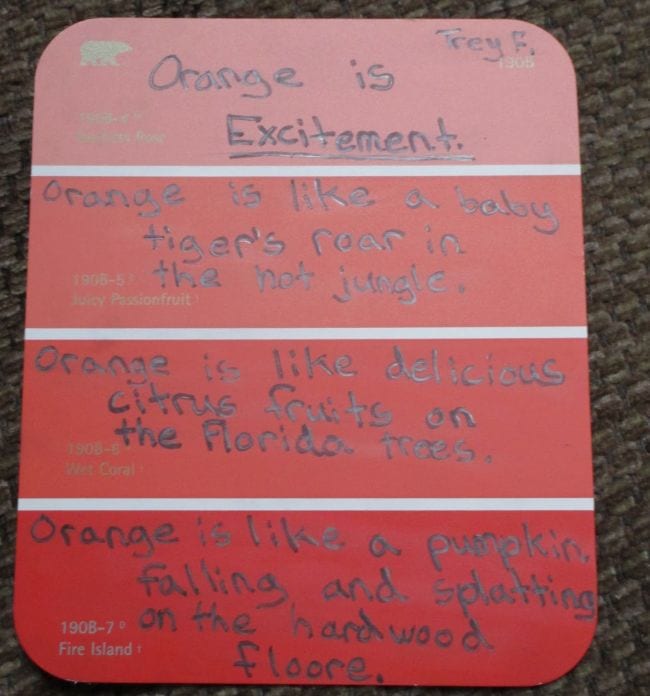
15. Create colorful paint chip poetry
This is easily one of the most popular poetry games, and for good reason. Colors are so easy to relate to and evoke lots of feelings and memories. Paint chip poetry works for every age group, too, and makes for a neat classroom display.
Learn more: Fabulous in Fifth
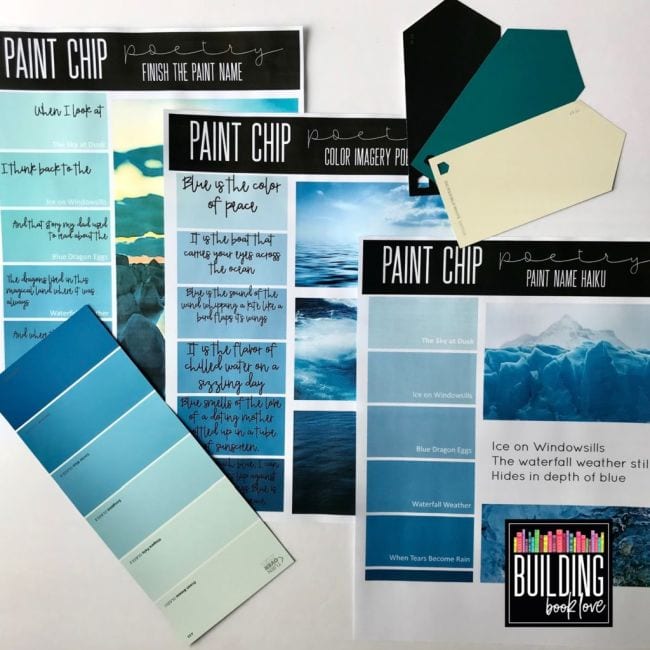
16. Expand on paint chip poetry
Feeling a little guilty about furtively stuffing paint chips in your pocket at the store? These printable paint chip poetry games are here to help. They include multiple ways to use paint chips for poetic inspiration too!
Learn more: Building Book Love
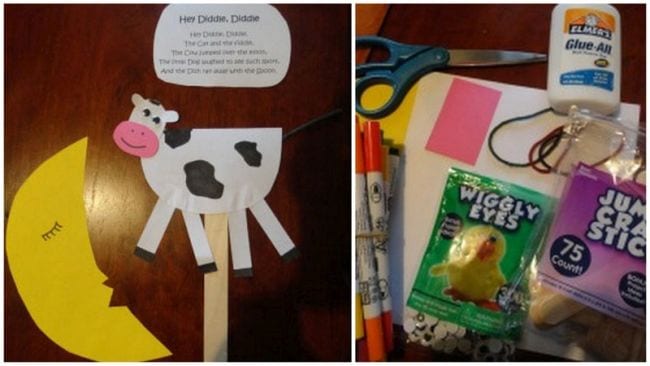
17. Have a “Hey Diddle, Diddle” puppet show
Nursery rhyme poems were just made to be acted out! Create stick puppets for “Hey Diddle, Diddle” using the instructions at the link, then expand to your other favorite rhymes to assemble a whole puppet show.
Learn more: All Kids Network
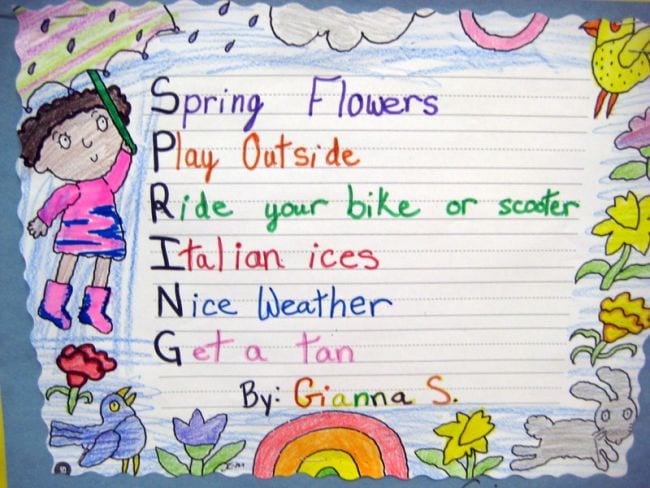
18. Compose acrostics
Acrostics are simple enough for beginning poets, but even Edgar Allan Poe used this style to create beautiful works. Writing one is almost like putting together a puzzle!
Learn more: My Poetic Side
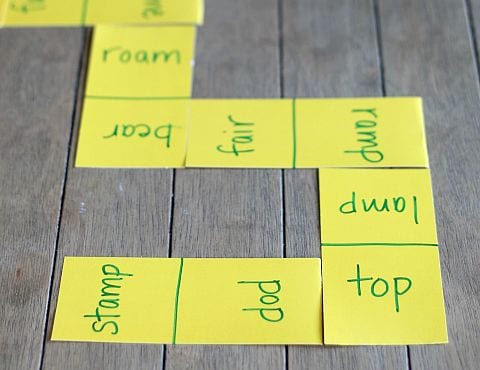
19. Match DIY rhyming dominoes
Rhyming poetry games are a lot of fun, and this one starts with some DIY dominoes made from sentence strips. This is a clever way to help kids find rhymes for writing their own poems.
Learn more: No Time for Flash Cards
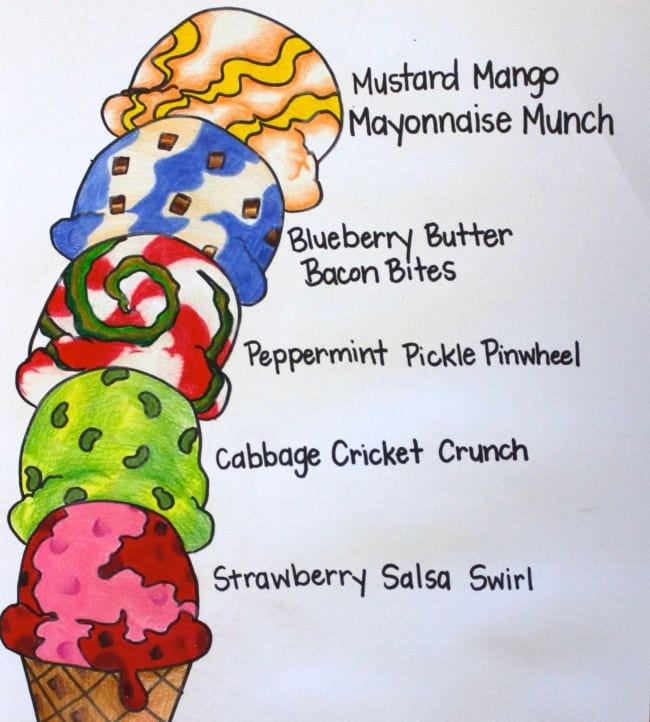
20. Scoop up some ice cream poetry
Jack Prelutsky’s “Bleezer’s Ice Cream” is a kids’ poetry classic, and it’s sure to spark your students’ imaginations. Have them write and illustrate their own ice cream poems, with a focus on alliteration and other literary devices.
Learn more: Creative Curriculum

21. Give haiku a hand
Haiku poems with their standard 5-7-5 syllable structure are fun to write. And let’s face it, most of us count the syllables on our fingers when we do! So this haiku helping hand is a perfect tool for kids. Have kids trace their own hand and write a haiku on it too.
Learn more: The Techie Teacher and Our Favorite Haiku Poems for Kids
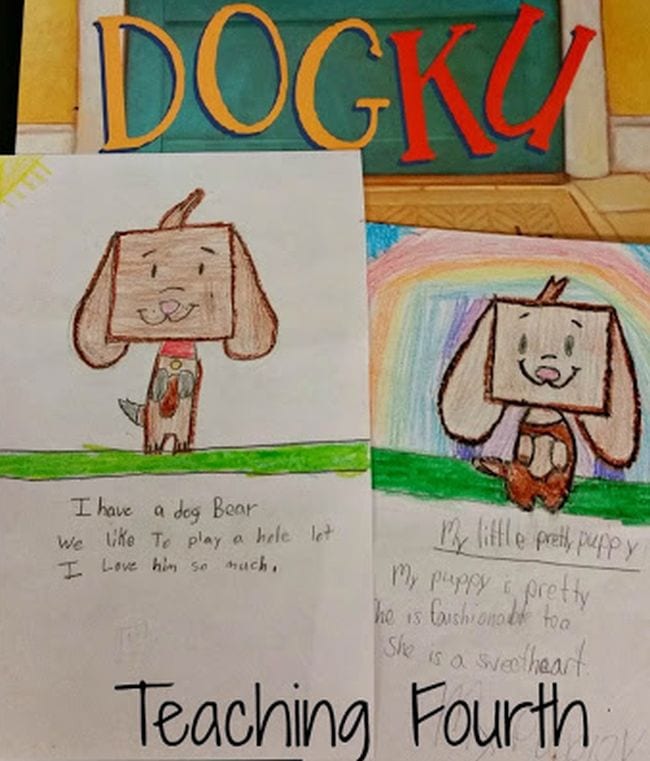
22. Fetch a doggie haiku
Once you start with haiku, there’s just so much you can do! Elementary kids will love hearing the story of Doug, a dog looking for his forever home, in Dogku by Andrew Clements. As you might guess, the tale is told entirely in haiku. After you read the book, have kids create and illustrate their own “Dogku” poems.
Learn more: Teaching Fourth
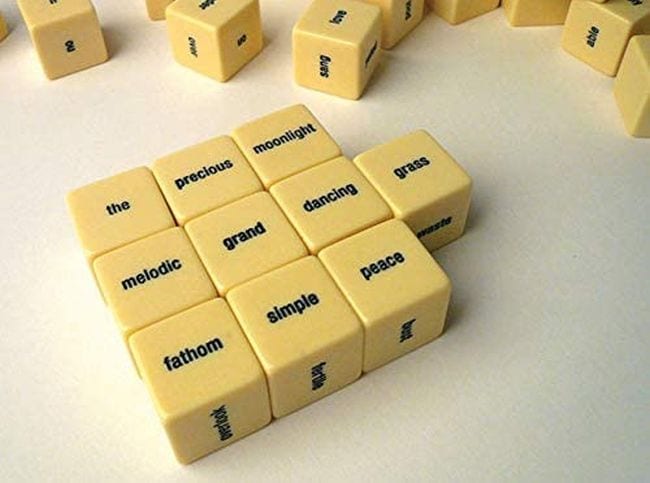
23. Roll the haiku dice
These are so cool! Haikubes are perfect for all sorts of poetry games. Roll the cubes and create a haiku, or draw a handful from a bag and use them to make your poem. You can use these for other poetry activities too.
Buy it: Haikubes on Amazon

24. Craft 3D tunnel haiku books
Haiku are fun to write, but a 3D tunnel haiku book is next-level awesome. This project looks harder than it is; all you really need are index cards, basic school supplies, and a lot of creativity.
Learn more: Teach Kids Art
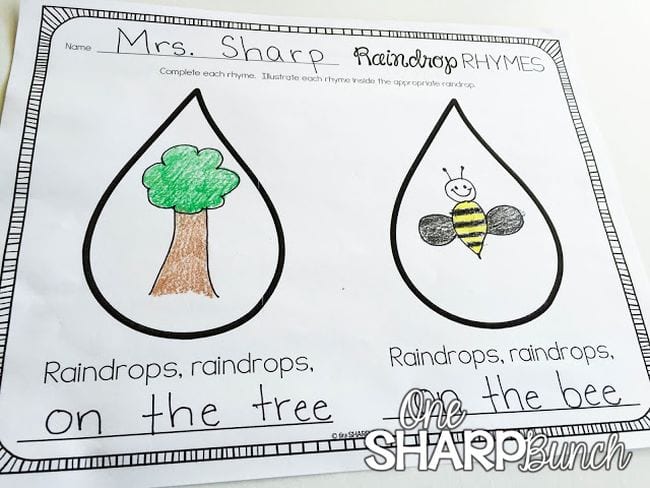
25. Be a copycat
We’re normally opposed to copying in the classroom, but for this activity, it’s A-OK! Kids write poems that mimic one they’ve been reading in class. This helps open their minds to the creativity they need to write their own unique verses later on down the line.
Learn more: One Sharp Bunch
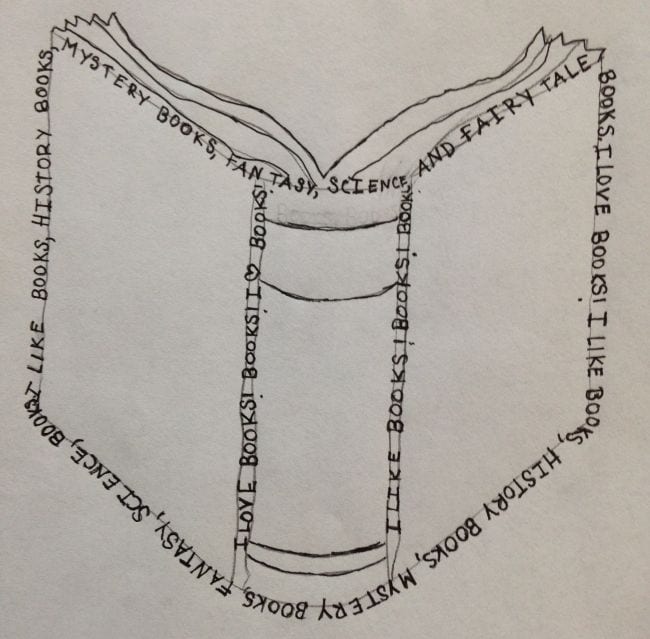
26. Draw a concrete poem
Concrete poems are art and poetry rolled into one. Kids write a poem on any subject they like, then craft it into a shape reflecting their topic. Tip: Use a light board to allow kids to trace shapes if they find drawing a bit too challenging.
Learn more: The Room Mom
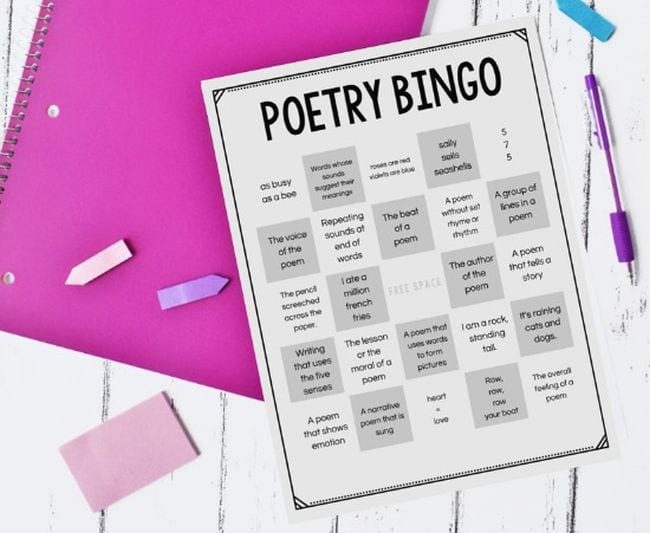
27. Play Poetry Bingo
Is there anything bingo can’t do? Turns out it even works for poetry games! Get free printable sheets to use for this Poetry Bingo game that reviews literary devices and vocabulary terms.
Learn more: Teaching With Jennifer Findley
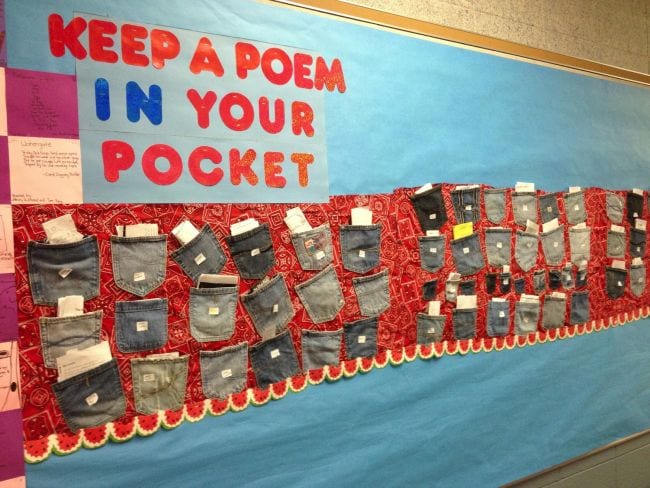
28. Keep a poem in your pocket
There are lots of poem-in-your-pocket activities out there, but we love this one for its sheer creativity! During independent reading time, kids explore and find their favorite poem to share with classmates. After they share, they tuck them in a pocket on this spectacular hallway bulletin board for others to find and read. (Turn this into an online activity by using an online bulletin board program like Padlet.)
Learn more: Pleasures From the Page
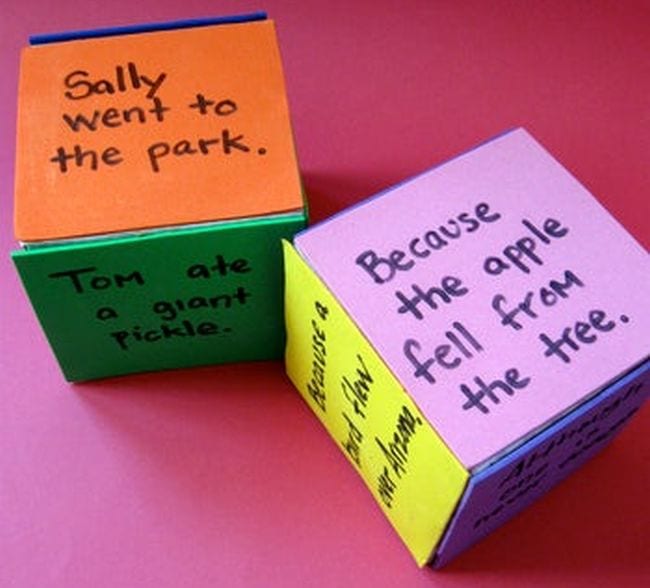
29. Design your own poetry dice
Learn about clauses when you make a set of dice to use for poetry games. Grab this set of Dry-Erase Blocks from Amazon and write dependent clauses on one and independent clauses on the other. Roll the dice and enjoy the verses you create!
Learn more: Education.com
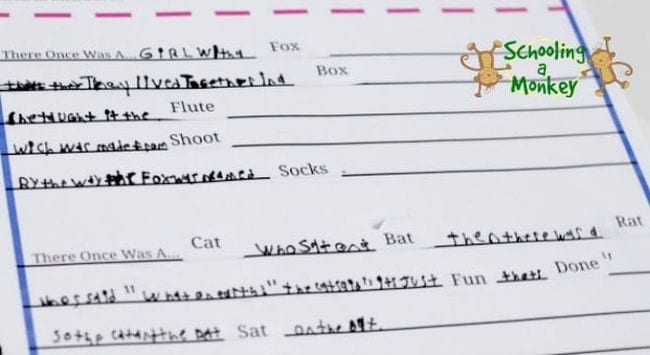
30. Learn limericks with a rhyming word bank
Kids love limericks—and really, who doesn’t? Their biggest challenge is usually coming up with the rhymes they need. This cool poetry activity creates a bank of rhyming words students can pull from as they craft their own lovable limericks to share.
Learn more: STEAMsational
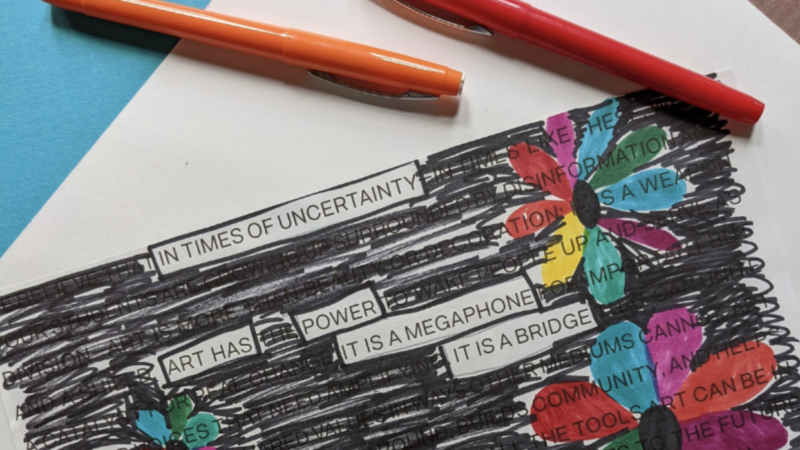
31. Color in blackout poetry
Blackout poems are a unique way of looking at the written word. This activity is easily differentiated for students from elementary through high school, and the results are often stunning.
Learn more: What Is Blackout Poetry (Plus Inspiring Examples and Ideas)
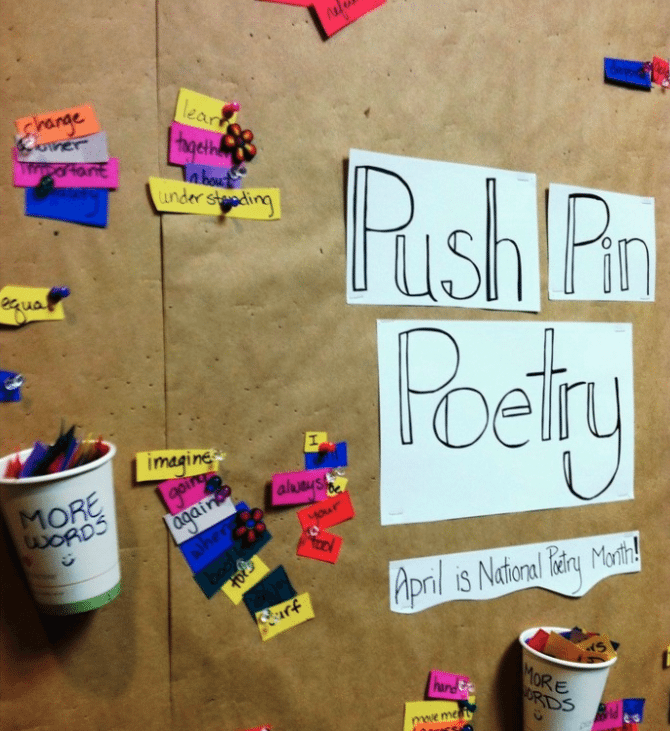
32. Post some pushpin poetry
Remember when poetry magnets were all the rage? You can still buy them (find them here on Amazon), but you can also just create your own from paper scraps and pushpins. This is a low-cost way to open the door to so many poetry games and activities.
Learn more: Residence Life Crafts
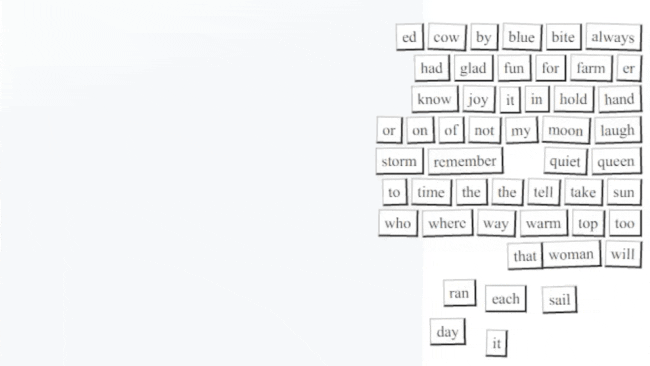
33. Make magnetic poetry online
Speaking of poetry magnets, did you know you can play with them online? Really! This clever site gives you new words every time, so there are always fresh new ideas to explore.
Learn more: Magnetic Poetry Online
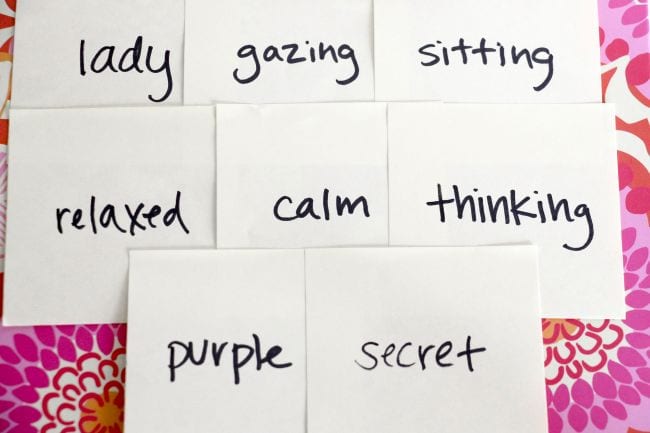
34. Say it with sticky notes
We love using sticky notes in the classroom, and they’re fantastic for poetry games. Have kids write a selection of words of their choice and stick them to the wall or whiteboard. Then let each student select words to use for their own verses.
Learn more: Secondary English Coffee Shop
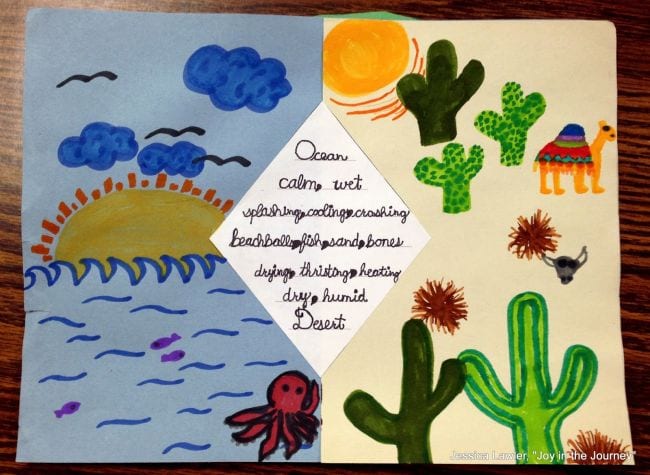
35. Prove that opposites attract
Even polar opposites can share similarities. For this poetry activity, students choose two opposite subjects, like the ocean and desert shown here. The middle line of the poem highlights the one similarity between the pair and acts as a transition (in this case: sand). Illustrations help tell the story.
Learn more: Joy in the Journey
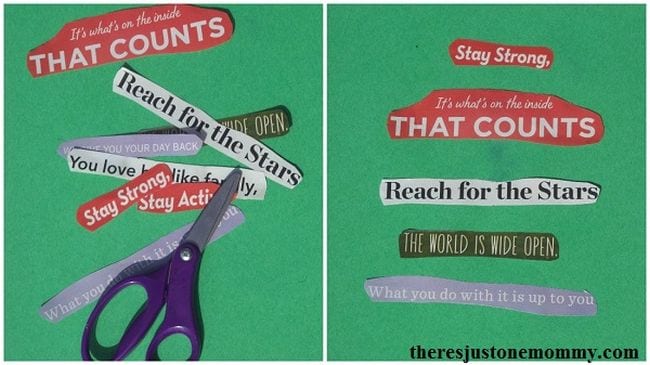
36. Find poetry everywhere
Found poetry is likely to become one of your students’ favorite poetry games. Give them a stack of magazines, newspapers, or books to look through, along with a pair of scissors. Have them cut out words and phrases they like, and then arrange them into a brand-new poetic masterpiece!
Learn more: There’s Just One Mommy
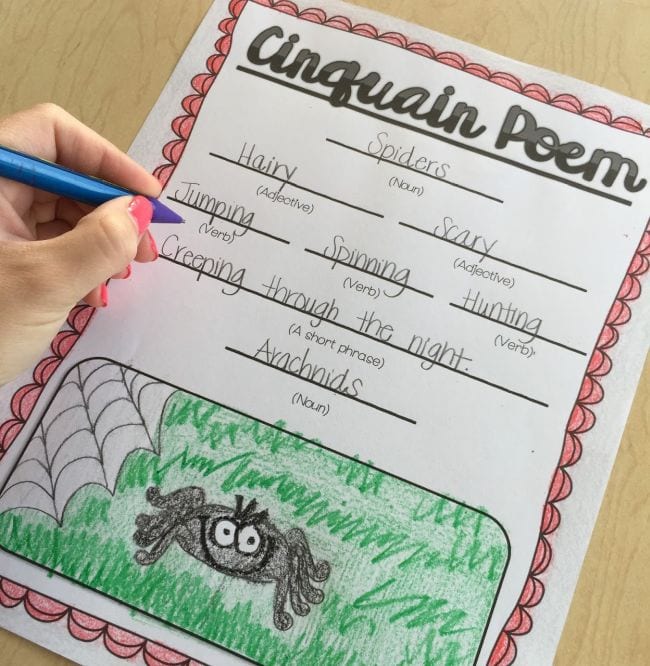
37. Start with simple cinquains
Cinquains are five-line poems with a specific structure. There are a variety of styles, but this poetry activity walks kids through the creation of a simple cinquain on any topic they like. This is a neat way to work on “-ing” words (known as gerunds). Bonus: This free printable Character Cinquains worksheet can be used with any book or story.
Learn more: Teaching With Terhune
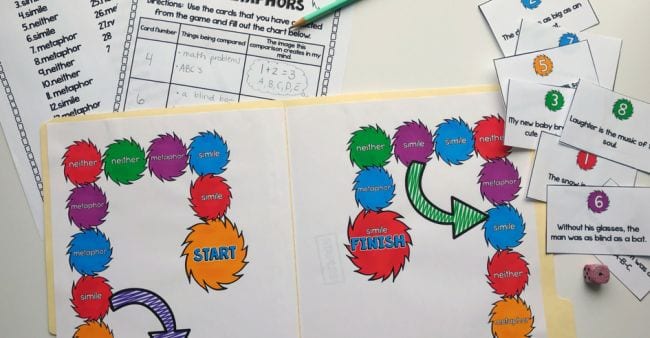
38. Learn metaphors and similes
Similes and metaphors are two of the most common literary devices found in poems. Help kids learn to tell the difference with this free printable game.
Learn more: The Classroom Nook
39. Take inspiration from metaphor dice
The right metaphor is the gateway to a unique and meaningful poem. Roll these dice to find a metaphor that will inspire and challenge your young poets.
Buy it: Metaphor Dice on Amazon

40. Host a poetry slam
Round off your poetry unit with a poetry slam! These events are a combination of recitations and poetry games, like freestyle rhyme battles. This is the ultimate event for poetry lovers of any age. Hold it in person, or stream it on Zoom so anyone can easily attend!
Learn more: How To Host a Poetry Slam and Slam Poetry Examples
Don’t miss our FREE printable poetry worksheet bundle!
What are your favorite poetry activities? Come share your ideas on the We Are Teachers HELPLINE group on Facebook.
Looking for more poetry to use in the classroom? Check out our list of the Best Poetry Books for Kids in Grades K-12.
